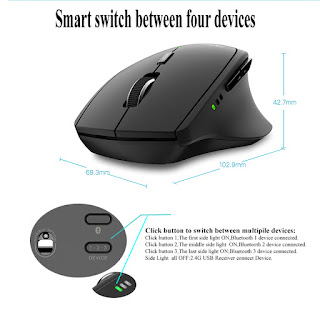VM Ware has released a version for Linux. Its' a shell script installing the files in your / (root). While installing the application at one point it might output a black screen with all sorts of error messages. This is most likely caused by a conflict with the new kernel (version 3.5). It has been fixed but how do you fix your setup?? Well, following this method and combining a live setup (USB, SD Card, Live CD/DVD) we can address the issue. Follow the instructions below.
1. First make a Live setup of your distribution or one of similar kind. I used Linux Mint 14 with KDE on a SD Card.
2. Boot into the Live setup.
3. Log in as root [ type { sudo su } and type your root password ]
4. Locate your setup's root drive (the one with the mount point / in your original setup) and mount it. It will be assigned a mount point most probably using a UUID, note that down. You'll find that in /media of your Live setup. What I did as find a unique part of the mount point's name and used it with { grep }. So, my mount point was /media/d4324-32d43-4242 and I used { ls | grep "d4324" }. You can ignore it and use the name provided directly.
5. Now use
6. Do these in the sequence
1. First make a Live setup of your distribution or one of similar kind. I used Linux Mint 14 with KDE on a SD Card.
2. Boot into the Live setup.
3. Log in as root [ type { sudo su } and type your root password ]
4. Locate your setup's root drive (the one with the mount point / in your original setup) and mount it. It will be assigned a mount point most probably using a UUID, note that down. You'll find that in /media of your Live setup. What I did as find a unique part of the mount point's name and used it with { grep }. So, my mount point was /media/d4324-32d43-4242 and I used { ls | grep "d4324" }. You can ignore it and use the name provided directly.
5. Now use
/media/$(ls /media/| grep "d4324" )before every directory mentioned here. Or you can ignore the
/media/$(ls /media/| grep "d4324" )part and instead use
/media/<your-mount-point>directly.
6. Do these in the sequence
cd /media/$(ls /media/| grep "d4324" )/lib/modules/<your-kernel-version>/misc # Note: If you have multiple kernel directories in the /lib/modules/ directory do the following for each one of them. If the files are not found in any kernel directory, ignore and go on with the commands. mv vm* /tmp cd /media/$(ls /media/| grep "d4324" )/proc/modules/ rm vmnet.o rm vmmon.o rm vmci.o rm vmblock.o rm vmppuser.o rm /media/$(ls /media/| grep "d4324" )/etc/rc2.d/*vmware* rm /media/$(ls /media/| grep "d4324" )/etc/rc3.d/*vmware* rm /media/$(ls /media/| grep "d4324" )/etc/rc5.d/*vmware* rm /media/$(ls /media/| grep "d4324" )/etc/rc6.d/*vmware* rm -rf /media/$(ls /media/| grep "d4324" )/etc/vmware* rm /media/$(ls /media/| grep "d4324" )/usr/bin/vmware-usbarbitrator rm /media/$(ls /media/| grep "d4324" )/usr/bin/vmnet* rm -r /media/$(ls /media/| grep "d4324" )/usr/lib/vmware* rm -r /media/$(ls /media/| grep "d4324" )/usr/share/doc/vmware*After that, try booting into your system. If all has gone well, you should be leaving a breath of relief.



No comments:
Post a Comment
Post your comment here. If you want to say something about programming problems, scripts, software etc, please try to be as descriptive as possible.